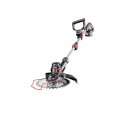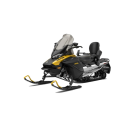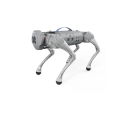-
21
-
2025-10-20 16:29:50
How much is starter motor replacement?
You turn the key (or mash the button), the dash glows like it’s auditioning for a sci-fi movie, and… nothing. Maybe a lonely click. Maybe a slow, tired whirr. Maybe the car gives you the automotive equivalent of a side-eye and refuses to cooperate. That tiny electric baton-waver that gets your engine spinning is the starter motor, and when it quits, you get a very specific kind of panic.
Here’s the thing: starter motor replacement doesn’t have one price. It’s more like “how long is a string?” — depends on the car, the part, and whether the mechanic likes cappuccinos or not. Below is a clear, human, slightly snarky guide so you can haggle like a pro and not get bamboozled.
the short version (for skimmers and people who hate numbers)
● Used / salvage: $30–$150
● Remanufactured (rebuilt): $50–$300
● New aftermarket: $80–$400
● New OEM (dealer): $200–$900+
● Labor: usually 1–3 hours; expect $80–$450 depending on shop and how buried the starter is
Total all-in: roughly $80 on the ultra-cheap end to $1,300+ for complicated dealer jobs. Most everyday cars? $250–$600 installed.
why the price swings like a temperamental dog
A few things that actually control the cost:
1. The car itself. Little hatchbacks use little starters. Trucks, diesels, and many European models use fat, expensive starters or stuff that’s harder to rebuild.
2. How accessible the starter is. If it’s sitting smugly under the hood, easy peasy. If it’s tucked under engine mounts, behind heat shields, or behind the intake manifold, the mechanic needs to play real-life Jenga. That costs labor.
3. New vs reman vs used. New OEM = pricey and safe. Reman = good value. Used = bargain, with more chance of “it dies again in two weeks” syndrome.
4. Core charges and warranty. Reman units often come with a refundable core charge — a way to make sure you hand the old busted unit back. Longer warranties generally mean higher price, but less anxiety later.
5. Shop rates. Dealers and city shops usually charge more than a competent local independent.
symptoms: is it really the starter?
Before you drop cash on a new starter, check some basics. Plenty of “starter” diagnoses turn out to be battery, cable, or fuse problems.
● A single click when you try to start: Classic starter/solenoid sign.
● Rapid clicking: Usually battery or poor connection.
● Nothing at all: Could be starter, but also ignition switch, a blown fuse/relay, or a dead battery.
● Engine cranks slowly: Often the battery or charging system; starter usually isn’t the issue here.
● Intermittent starting: Could be a flaky starter or bad wiring.
● Burning smell, smoke: Don’t keep trying — that’s an electrical problem that can get expensive fast.
Quick sanity checks: battery voltage should be around 12.6 V at rest. Tighten and clean battery terminals. If in doubt, get a battery and alternator test at any parts store — they often do that for free.
new vs reman vs used — how to choose without crying
● New OEM: Factory fit, best long-term reliability, expensive. Use this if you love peace of mind and plan to keep the car.
● New aftermarket: Cheaper, quality varies. Stick to well-known brands if you go this route.
● Remanufactured: Starter is rebuilt with new wear parts and tested. Best middle ground for most people. Look for at least a 6–12 month warranty.
● Used / salvage: Cheapest. Fine for a stopgap or if you’re saving up, but higher failure risk.
Most sane money-saving people pick a remanufactured starter from a reputable supplier. You’ll get decent reliability without paying dealer prices.
labor — the part that bites you in the wallet
Labor often matches or exceeds the part cost. Why? Because accessibility varies wildly. A straightforward swap might be 30–60 minutes. If the starter is hard to reach, you’re looking at 2–3 hours or more.
Shops aren’t just paying for the guy turning the wrench: they’re paying for diagnosis, lifts, tools, overhead, and a warranty. Ask for an itemized estimate. If the dealer says 3 hours and a local shop says 1.5 hours for the same job, there’s real money in that difference.
example calculations (I’ll actually do the math step by step)
People like round numbers and proof. Here are three realistic scenarios, fully calculated:
Example A — mid-size sedan, reman starter, typical independent shop
● Part (reman): $150
● Shop rate: $120 per hour
● Time: 1.5 hours
Compute labor: 120 × 1.5 = (120 × 1) + (120 × 0.5) = 120 + 60 = 180.
Total: part 150 + labor 180 = 330.
Final bill: $330.
Example B — small economy car, easy access
● Part (aftermarket): $100
● Shop rate: $100 per hour
● Time: 1.0 hour
Compute labor: 100 × 1.0 = (100 × 1) = 100.
Total: part 100 + labor 100 = 200.
Final bill: $200.
Example C — luxury sedan or diesel, dealer job
● Part (OEM): $600
● Shop rate: $200 per hour
● Time: 2.0 hours
Compute labor: 200 × 2.0 = (200 × 2) = 400.
Total: part 600 + labor 400 = 1000.
Final bill: $1,000.
Use those as benchmarks. If a quote is wildly outside, ask why — and for an itemized list.
where to buy and what to ask
Options:
● Dealer: Exact fit, warranty, higher price.
● Auto parts stores (AutoZone, NAPA, O’Reilly): Convenient, reman options, often test and core-handling.
● Online (RockAuto, Amazon, eBay): Lots of options, watch returns and fitment.
● Local reman shop: Often great value and local service.
● Salvage yard: Cheapest, but buyer beware.
When buying, verify part numbers and fitment. Ask if the solenoid is included. Confirm the core charge and warranty length. A wrong part can physically fit but have different gear teeth, connector shape, or rotation — compatibility matters.
DIY — yes, but only if you’re actually handy
If you like wrenching, have the tools, and know your way around a car, DIY can save the labor bill. Typical DIY time: 1–3 hours depending on car and your skill.
Safety and tips:
● Disconnect the battery.
● Use jack stands if you need to get under the car. Don’t rely on the jack alone.
● Keep bolts organized — take pictures if needed.
● Be ready for seized bolts and stubborn brackets.
If you’re not confident, don’t do it. A botched job can cost you more than the labor would have.
money-saving moves that actually help
● Diagnose before replacing. Battery and cables are cheap fixes.
● Get two quotes: one dealer, one independent.
● Choose reman when sensible. It’s good value.
● Ask about core refunds up front. Return the old starter and get your cash back.
● Bundle checks: While the starter’s out, have them inspect cables, relays, and fuses. Small fixes can prevent a repeat trip.
● Ask for itemized invoices so you’re comparing apples to apples.
final verdict (short, actionable)
Starter replacement ranges from “cheap and quick” to “expensive and fiddly.” For most drivers expect $250–$600 installed. DIY and remanufactured parts are where you save the most. Dealer/OEM is the safe but expensive route. Before you pay, confirm diagnosis, compare quotes, and ask the shop to be transparent about labor hours.
Tell me your car make, model, and year and I’ll give you a tighter range and likely labor time to quote to mechanics. No hard sell — just numbers you can use when calling shops.











